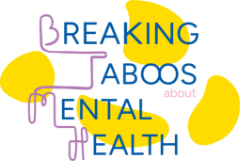In our rapidly changing world, mental health has become an increasingly significant issue. Sometimes, we need a friend or someone to share our struggles with. Peer support offers a valuable source of understanding and empathy, providing a listening ear and practical advice from those who have faced similar challenges.
Peer support is the assistance individuals receive from their peers. This form of support is valuable because peers often better understand the specific challenges their friends face.
Peer support plays a crucial role in the mental health landscape for young people, providing a unique and effective way to address the challenges that arise during adolescence. As they navigate the complexities of growing up, young individuals often face issues like academic pressure, social dynamics and personal identity struggles. All of which can impact their mental well-being.
In these situations, peer support provides an essential lifeline. By connecting with others who share similar experiences, young people can find a sense of understanding and validation that might be difficult to obtain from adults or professionals. This shared understanding fosters a supportive environment where individuals can express their feelings, exchange coping strategies, and receive encouragement.
How does peer to peer support work?
Peer to peer support includes talking, sharing experiences and offering guidance among individuals with similar backgrounds. It relies on equality and mutual give-and-take, fostering open and trusting connections. This type of support reduces loneliness and isolation, boosts feelings of belonging, and positively impacts mental and emotional well-being.
The first step in peer-to-peer support is establishing connections between individuals who have faced or are facing similar situations. These connections can be formed in various environments, such as schools, community groups or online forums. The focus is on creating a safe and inclusive space where participants feel comfortable sharing their experiences.
Benefits of peer to peer support
Participating in peer support offers numerous benefits that can significantly enhance an individual’s mental and emotional well-being. These benefits stem from the unique dynamics of peer relationships, where understanding and empathy are rooted in shared experiences.
One of the primary benefits of peer support is the emotional support that individuals receive from others who have faced similar challenges. This shared understanding creates a strong sense of connection, as people feel validated and understood in ways that might not be possible in more formal settings.
Participating in peer support boosts self-esteem and confidence. Those providing support often feel valued, while those receiving it gain recognition of their own worth. Additionally, peer support helps develop social skills like communication, empathy, and conflict resolution, contributing to a better quality of life.
Challenges
Despite its many benefits, peer support is not without challenges. One issue is the lack of professional expertise in handling serious mental health issues, which can lead to inadequate support. Additionally, there is a risk of burnout among those providing support, as they may also need assistance themselves.
Conflicts can arise in peer support settings due to differing viewpoints or misunderstandings. Peers might not have the skills to handle sensitive issues or resolve disagreements, which can disrupt the support process and impact both individuals involved.
Conclusion
Overall, peer to peer support plays a crucial role in enhancing mental health and quality of life by fostering mutual understanding and assistance. It is important to promote this type of support across various settings to maximize its benefits. For young people, peer to peer support is especially vital, as it not only improves mental health but also helps create a more empathetic and supportive community. By investing in and encouraging peer support networks, we can build stronger, more resilient communities that offer valuable emotional and social support to individuals of all ages.
References
Omra (2024,) Peer support affects recovery from mental health problems; https://www.omra.si/o-motnjah/stigma-in-iskanje-pomoci/zanimivosti-o-stigmi/kako-pomembna-je-vrstniska-podpora/
Distress Centre (2024, 5. january), 10 Benefits of Peer Support;
https://distresscentre.com/2024/01/05/10-benefits-of-peer-support/

